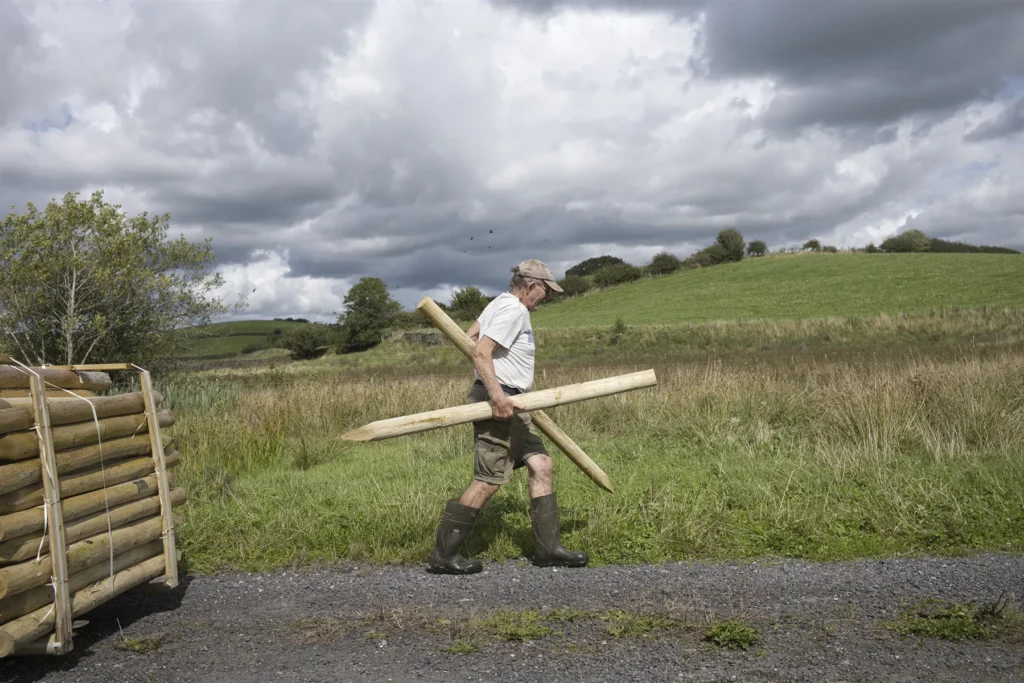Intervention and renewal…
Photographer Johannes Pretorius reflects on his commission for We Feed The UK, to document three generations of the Robinson family at Strickley Farm in Cumbria.

Humans intervene to influence outcomes. Early agrarian societies grew crops in fertile floodplains to increase their harvests. Their actions were just that: interventions. Since the industrial era, it is this same tendency that has led to maximising agricultural yields through techno-scientific interventions characterised by intensive animal farming, monoculture, pesticides, and synthetic fertilisers. It has also impoverished soil, increased pollutants, and contributed to a rapid decline in biodiversity.

It is impossible to imagine a society where humans do not alter their environment. The question is therefore not whether to intervene, but how and to what extent? In Getting Along with Nature, Wendell Berry writes that if humans “choose to make too great a difference, they diminish nature, and narrow their subsequent choices; ultimately, they diminish or destroy themselves.”


Forward-thinking farmers recognise this danger and work with nature to provide for their and our livelihoods. Three generations of the Robinson family work at Strickley, their organic dairy farm in Cumbria. On it they also manage kilometres of species-rich hedgerows and are actively rewilding woodlands and wetlands. The habitats they create increase biodiversity by sustaining interdependent communities of microorganisms, plants, and animals. This is aided by the absence of pesticides and inorganic fertilisers as surveys of the stream that runs through the farm show. Its clean water supports growing numbers of arthropods, crustaceans, fish, and mammals.

By balancing intervention and renewal, the Robinsons embrace a new sensibility that reconciles economic viability and environmental sustainability. As a family farm with a long history (they have been exhibiting at the local agricultural show for 150 years), this proactive approach is a credible example to their peers. It can also serve as a model to society at large.

Johannes’ exhibition is part of the Open Eye Gallery’s LOOK Climate Lab. New for 2024, this programme explores photography as a medium for communicating information about our climate, and encourages audiences to discuss the systematic changes needed for dealing with this crisis.


